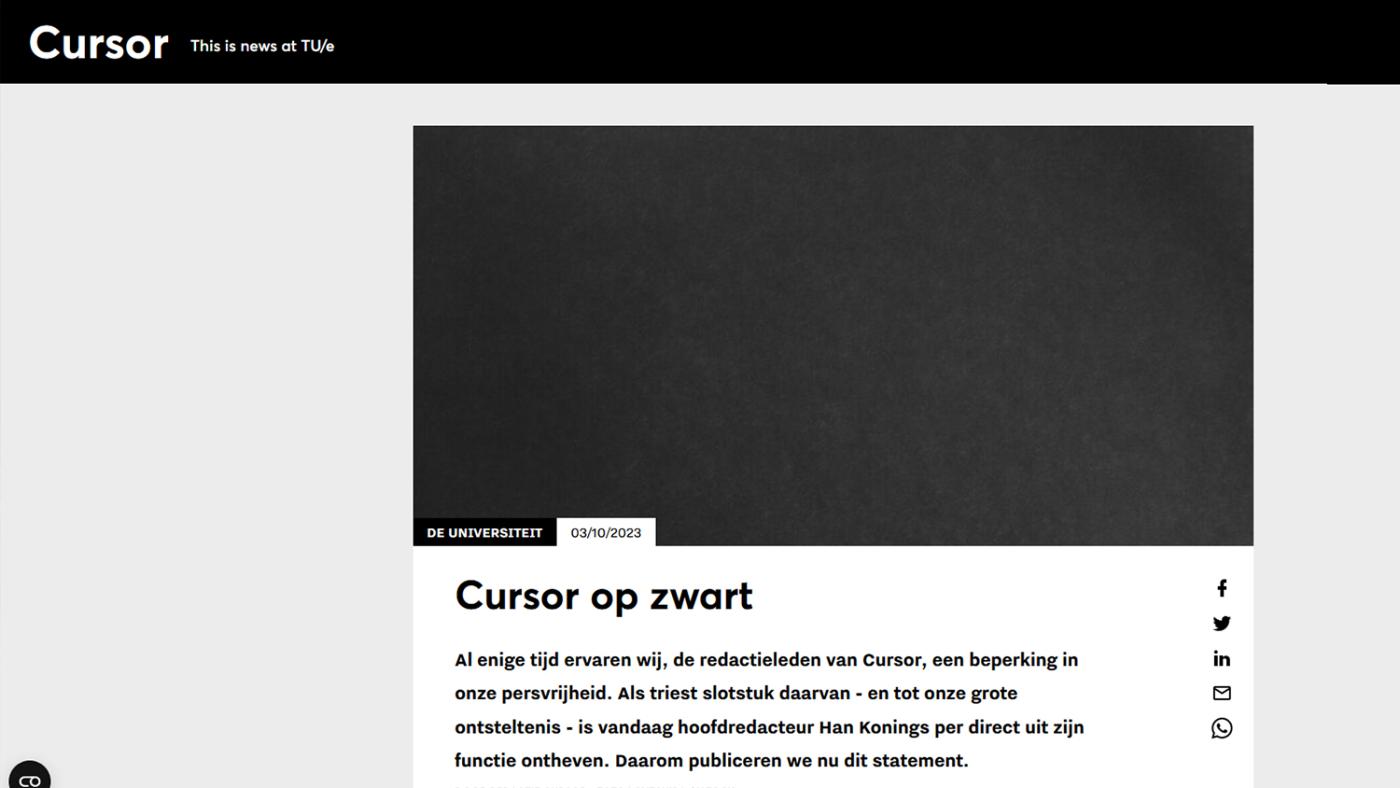Freedom of the press in danger
TU/e’s university magazine stages blackout protest

The editors have posted a statement on the website. "We, the editors of Cursor, have been experiencing a restriction of our freedom of press for some time now." They qualify the dismissal of editor-in-chief Han Konings as a "sad conclusion."
The problem allegedly began with the decision not to publish an article about a conflict of interests. The editorial board opposed publication, stating that the piece did not meet the “information needs of the TU/e community”. Cursor’s editors argue that the article was thoroughly checked and submitted for rebuttal, but great pressure was exerted to keep its contents out of the public eye.
“The editor-in-chief decided not to publish the article under these circumstances because he was afraid of the consequences”, the editors state. The author of the article, Bridget Spoor, did not accept the decision, so she filed a complaint with the university before the summer. Her complaining is yet to be dealt with substantively.
Spoor confirms that the reported conflict of interests involves a senior executive at the university. She is not authorised to say anything else at this stage as she is currently collaborating with national daily De Volkskrant, which is due to publish a story on the issue soon.
Editor-in-chief Konings held the position of Cursor's editor-in-chief for almost 22 years. So far he has declined to comment, other than confirming that it was not his choice to leave and expressing regret at the course of events.
The chair of the editorial board is Frank Janssen, an expert on reputation and strategy that is external to the university. He could not be contacted this morning. TU/e was not answering the phone either.
Demands
Cursor's editors are calling for a new, independent editorial board and for a say in the appointment of the new editor-in-chief. They also want the editorial statute to be reviewed in order to ensure their independence.
These demands have met with support from the association of editors-in-chief of higher education media, whose chair, DUB's editor-in-chief Ries Agterberg, underscores that independent editors are not supposed to submit articles to the editorial board before publication anyway.
“This conflict has been going on for several years,” says Agterberg. “We've already addressed the matter in a letter to the university.” In his view, the current president of TU/e's Executive Board, Robert-Jan Smits, does not see the value of an independent journalistic medium at the university.
“A university is an academic community,” Agterberg insists, “and that includes transparency and debate. What do students and staff need to know? Sometimes what they need to know is not what the executive board wants them to hear. An independent news medium ensures that the information provided is reliable.”
Statutes
According to Agterberg, now that the statute in Eindhoven seems to not have protected editors enough, the association of editors-in-chief plans to review the editorial statutes of the other associated university publications. “It's important to do that. There have been no problems in the other institutions these past few years, but the statutes exist for times when things are not going as they should. Hence the need to provide a clear frame of reference.”
This is not the first time such conflicts arise. In 2017, then Minister of Education Jet Bussemaker saw no reason (link in Dutch, Ed.) to investigate media independence in higher education. She also saw little point in introducing legal guarantees for independence, as proposed by the Socialist Party at the time.